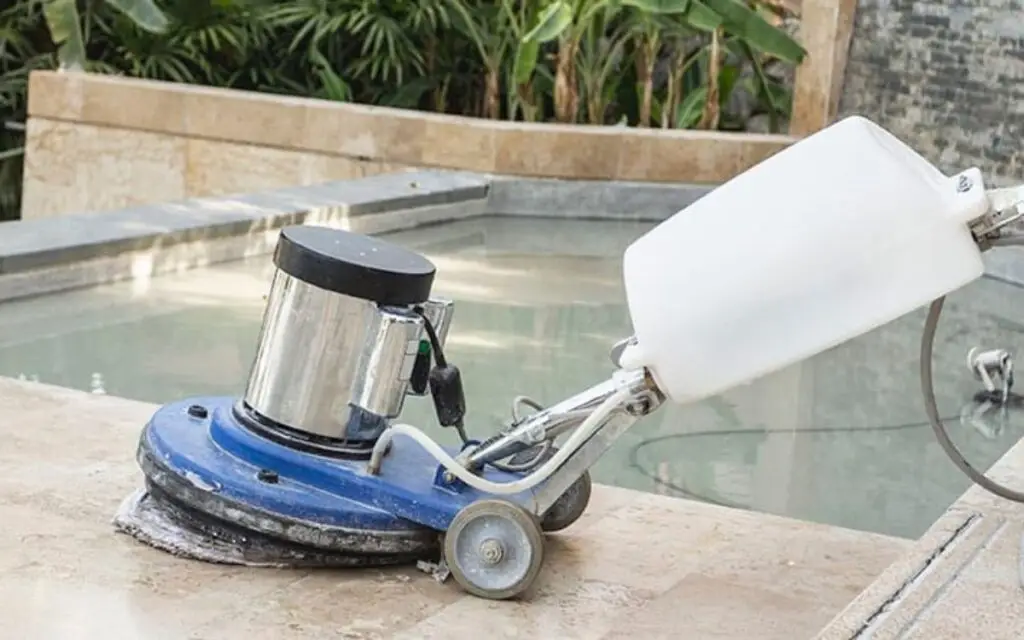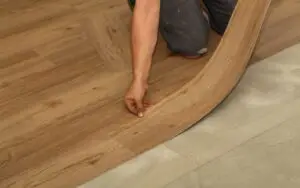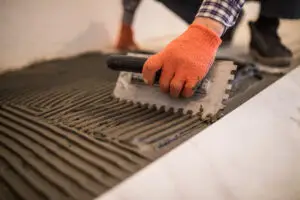Understanding Your Floor Type
Identifying Your Floor Material
Before attempting to make your floor shine like new, it’s crucial to accurately identify the material it’s made from. Common floor materials include hardwood, tile (ceramic, porcelain, etc.), laminate, vinyl, concrete, and stone (marble, granite, etc.). Each material has unique properties and requires specific cleaning and polishing methods. Using the wrong approach can damage your floor, so taking the time to identify it correctly is essential. If you’re unsure, consult a professional floor care specialist for assistance.
Different Floors, Different Needs
Different floor materials have different needs when it comes to cleaning and polishing. For example, hardwood floors require gentle cleaning methods and specialized polishes to prevent water damage and maintain their luster. Tile floors are more durable but can be susceptible to grout staining. Laminate and vinyl floors require gentle cleaning and should not be heavily polished. Concrete and stone floors may require specialized grinding and polishing techniques to achieve a high-gloss finish. Understanding these differences is crucial for achieving optimal results and preventing damage to your floors.
Essential Cleaning Steps
Removing Surface Dirt and Debris
The first step in making your floors shine like new is to remove surface dirt and debris. This can be done by sweeping, vacuuming, or using a dust mop. Be sure to reach all corners and edges, and pay special attention to high-traffic areas. Removing surface dirt and debris is essential for preventing scratches and ensuring that subsequent cleaning and polishing steps are effective.
Deep Cleaning for Stubborn Stains
After removing surface dirt and debris, it’s time to tackle any stubborn stains or marks. The appropriate deep cleaning method will depend on the type of flooring and the nature of the stain. For hardwood floors, avoid using excessive water and opt for a specialized wood floor cleaner. For tile floors, a grout brush and tile cleaner can be effective. For other types of flooring, consult the manufacturer’s recommendations or seek professional advice.
The Right Cleaning Products
Using the right cleaning products is crucial for achieving optimal results and preventing damage to your floors. Avoid using harsh chemicals, abrasive cleaners, or products that are not specifically designed for your flooring type. Opt for pH-neutral cleaners that are gentle yet effective. Professional floor care services use high-quality cleaning products that are specifically formulated to restore shine and protect the integrity of your floors.
Buffing for Enhanced Shine
What is Buffing and How Does It Work?
Buffing is a process that uses a specialized machine with a rotating pad to gently polish the surface of your floors. It’s an effective way to enhance shine, remove light scratches, and prepare the floor for additional treatments. Buffing works by creating friction that smooths the surface and removes minor imperfections. While DIY buffing is possible, achieving professional-level results often requires specialized equipment and expertise that only professional floor care services can provide.
Choosing the Right Buffing Pad
Choosing the right buffing pad is crucial for achieving the desired outcome. Different pads are designed for different purposes, such as removing light scratches, enhancing shine, or applying polish. Using the wrong pad can damage the floor or produce unsatisfactory results. Professional floor care providers have a variety of pads and the expertise to select the best one for your specific flooring type and needs.
Buffing Techniques for Maximum Shine
Proper buffing techniques are essential for achieving a smooth, even, and shiny finish. The buffer should be moved in a consistent pattern, overlapping each pass to avoid streaks or swirl marks. The pressure applied should be even and moderate, avoiding excessive force that could damage the floor. Professional buffing technicians are trained in these techniques and can deliver consistently excellent results.
Polishing for a Lasting Gleam
When is Polishing Necessary?
Polishing is necessary when your floors have lost their shine, have significant scratches or wear, or require a new protective layer. It’s a more intensive treatment than buffing and is typically reserved for floors that need a complete restoration. If you’re looking to achieve a high-gloss finish and protect your floors from future damage, polishing is the way to go.
Selecting the Right Polish
Selecting the right polish is crucial for achieving the desired results and preventing damage to your floors. Different polishes are designed for different flooring types and purposes. For example, there are specialized polishes for hardwood floors, tile floors, and concrete floors. It’s important to read the product labels carefully and choose a polish that is specifically recommended for your flooring type.
Polishing Techniques for Professional Results
Achieving professional-quality polishing results requires specialized techniques and equipment. The floor must be thoroughly cleaned and prepared before polishing. The polish should be applied evenly and in thin coats, allowing each coat to dry completely before applying the next. A high-speed polisher should be used to buff the floor to a high shine. Professional floor polishing services have the expertise and equipment to achieve a flawless and long-lasting finish.
Sealing for Protection and Shine
Why Seal Your Floors?
Sealing your floors is an important step in protecting them from damage and maintaining their shine. Sealers create a protective barrier that prevents dirt, moisture, and stains from penetrating the surface. This makes your floors easier to clean and helps to prevent damage from spills, scratches, and other everyday wear and tear.
Choosing the Right Sealer
Choosing the right sealer is crucial for achieving the desired level of protection and shine. Different sealers are designed for different flooring types and purposes. For example, there are specialized sealers for hardwood floors, tile floors, and concrete floors. It’s important to read the product labels carefully and choose a sealer that is specifically recommended for your flooring type.
Sealing Techniques for Long-Lasting Protection
Proper sealing techniques are essential for achieving long-lasting protection. The floor must be thoroughly cleaned and dried before sealing. The sealer should be applied evenly and in thin coats, allowing each coat to dry completely before applying the next. A sealant applicator or a microfiber mop can be used to ensure even coverage. Professional floor sealing services have the expertise and equipment to achieve a flawless and durable seal.
DIY vs. Professional Floor Care
Assessing Your Skills and Equipment
Before attempting any DIY floor care project, it’s important to honestly assess your skills and equipment. Do you have the necessary knowledge and experience to complete the project successfully? Do you have the right equipment and tools? If you’re unsure, it’s best to err on the side of caution and hire a professional floor care service.
Cost Analysis: DIY vs. Professional
A cost analysis of DIY versus professional floor care should consider the initial investment, ongoing maintenance, and potential for mistakes. DIY projects may seem cheaper initially, but the cost of equipment rental, supplies, and potential for errors can quickly add up. Professional floor care services may have a higher upfront cost, but they provide a long-lasting, durable finish that requires less frequent maintenance, potentially saving you money in the long run.
Risks of DIY Floor Restoration
DIY floor restoration projects carry several potential risks, including damage to the flooring, uneven application of finishes, and personal injury. Improper use of equipment, lack of experience, and failure to follow safety precautions can all lead to costly mistakes. Professional floor care services have the expertise, equipment, and insurance to mitigate these risks, ensuring a safe and successful outcome.
Potential Pitfalls of DIY Floor Restoration
Uneven Finishes and Streaks
One of the most common pitfalls of DIY floor restoration is achieving an uneven finish. This can be caused by improper application techniques, using the wrong products, or failing to properly prepare the surface. Uneven finishes can detract from the appearance of your floors and may require costly repairs.
Damage to the Floor Surface
Another potential pitfall of DIY floor restoration is damage to the floor surface. Using abrasive cleaners, improper equipment, or excessive pressure can scratch, gouge, or otherwise damage your floors. Professional floor care providers have the knowledge and experience to protect your floors from damage and ensure a safe and successful outcome.
Safety Concerns and Health Risks
DIY floor restoration can also pose safety concerns and health risks, such as exposure to hazardous chemicals, slips and falls, and electrical hazards. It’s important to follow safety precautions and use appropriate protective gear to minimize these risks. Professional floor care providers are trained in safety procedures and use specialized equipment to minimize the risk of accidents and injuries.
The Benefits of Professional Floor Care Services
Expertise and Experience
One of the primary benefits of hiring a professional floor care service is their expertise and experience. They have the knowledge and skills to assess the condition of your floors, recommend the appropriate treatment, and execute the work flawlessly. This expertise can save you time, money, and frustration in the long run.
Professional Equipment and Products
Professional floor care services use specialized equipment and high-quality products that are not typically available to homeowners. This allows them to achieve superior results and protect your floors from damage. They also stay up-to-date on the latest industry trends and best practices, ensuring that your floors receive the best possible care.
Guaranteed Results and Peace of Mind
When you hire a professional floor care service, you can expect guaranteed results and peace of mind. They stand behind their work and will take the necessary steps to ensure that you are completely satisfied with the outcome. This peace of mind is invaluable and can justify the cost of hiring a professional.
Maintaining Your Newly Shining Floors
Regular Cleaning Routine
Maintaining a regular cleaning routine is essential for keeping your floors looking their best. Sweep or vacuum regularly to remove dirt and debris. Mop with a pH-neutral cleaner to remove stains and spills. Avoid using harsh chemicals or abrasive cleaners, as these can damage the finish.
Protecting Your Floors from Damage
Protect your floors from damage by using mats and rugs in high-traffic areas. Place felt pads under furniture legs to prevent scratches. Avoid wearing shoes with hard soles or high heels on your floors. Promptly clean up spills to prevent staining and damage to the finish.
Preventing Future Dullness
Prevent future dullness by following a regular maintenance routine and protecting your floors from damage. Reapply polish or sealer as needed to maintain the shine and protection. Consider hiring a professional floor care service for regular maintenance and restoration to keep your floors looking their best for years to come.
Case Studies: Before and After Floor Transformations
Residential Homes
Many residential homes have experienced dramatic floor transformations thanks to professional floor care services. For example, a home with dull and scratched hardwood floors hired a professional to sand, stain, and seal the floors. The result was a stunning transformation that completely changed the look and feel of the home.
Commercial Spaces
Commercial spaces also benefit greatly from professional floor care services. For example, a retail store with worn and faded tile floors hired a professional to clean, polish, and seal the floors. The result was a brighter, more welcoming store that attracted more customers and increased sales.
Long-Term Benefits and Customer Satisfaction
The long-term benefits of professional floor care services are clear. Floors that are properly maintained and restored last longer, look better, and require less frequent repairs. Customers who invest in professional floor care services are consistently satisfied with the results and enjoy the peace of mind that comes with knowing their floors are in good hands.
FAQs & Answers
The best way to clean hardwood floors and bring out their natural shine is to start with a gentle approach. Begin by sweeping or vacuuming to remove any loose dirt and debris. Then, use a microfiber mop dampened with a pH-neutral hardwood floor cleaner. Avoid using excessive water, as it can seep into the wood and cause damage. For an extra boost of shine, consider using a hardwood floor polish specifically designed for your floor's finish. While DIY solutions like vinegar and water are often suggested, they can actually dull the finish over time due to their acidity. For optimal results and to protect your investment, professional hardwood floor cleaning services offer specialized techniques and products that enhance shine without compromising the integrity of the wood.
While vinegar is a popular household cleaning agent, it's generally not recommended for cleaning floors, especially hardwood and certain types of tile. The acidity of vinegar can damage the finish on hardwood floors, leading to dullness and even erosion over time. On tile floors, vinegar can etch the surface and discolor grout. For most floor types, a pH-neutral cleaner specifically designed for that material is a safer and more effective option. These cleaners are formulated to remove dirt and grime without harming the floor's finish. For a truly dazzling shine, professional floor cleaning services offer specialized polishing treatments that are tailored to your floor type and guarantee a long-lasting luster.
Getting rid of scratches on your floors to restore their shine depends on the severity of the scratches and the type of flooring. For minor surface scratches on hardwood floors, buffing with a specialized product may be sufficient. Deeper scratches may require sanding and refinishing the affected area. For tile or laminate floors, scratch repair kits are available, but the results can vary. Ultimately, the most effective way to eliminate scratches and restore your floor's shine is to enlist the services of a professional floor care company. They have the expertise, equipment, and products to assess the damage and implement the appropriate repair or refinishing techniques, ensuring a flawless and long-lasting result.
To make tile floors shine like new, start by thoroughly cleaning them to remove any dirt, grime, or stains. Use a pH-neutral tile cleaner and a microfiber mop to avoid scratching the surface. Pay special attention to the grout lines, as they can harbor dirt and bacteria. For stubborn stains, consider using a grout brush and a specialized grout cleaner. Once the floors are clean, apply a tile polish or sealer to enhance the shine and protect the surface from future damage. Professional tile floor cleaning services offer advanced cleaning, polishing, and sealing techniques that can restore your tile floors to their original brilliance. They can also address issues like grout discoloration and cracked tiles, providing a comprehensive solution for restoring the beauty of your tile floors.
The frequency of polishing your floors to maintain their shine depends on several factors, including the type of flooring, the amount of foot traffic, and your personal preferences. High-traffic areas may require more frequent polishing than low-traffic areas. In general, hardwood floors should be professionally polished every 3-5 years, while tile floors may only need polishing every 1-2 years. Professional floor care services can assess your specific needs and recommend a polishing schedule that keeps your floors looking their best without overdoing it. They can also provide tips on daily cleaning and maintenance to extend the life of your polish and keep your floors shining brightly.





